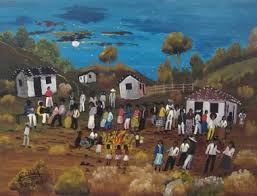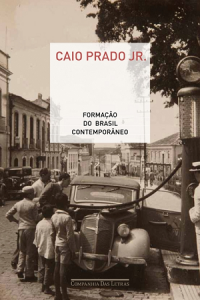
Ignored and abandoned lives
The idea that there are wasted lives, present in many discourses of modernity Late who want to be postmodern, hide the idea that there was a time that there was a “good society” that would provide employment for all, and there would be a queue of unemployed, he said verbatim: “The unemployed society of producers (including those temporarily away from the production line) may have been wretched and miserable, but their place in society was safe and questionable” (p. 22).
the idea that there was a time that there was a “good society” that would provide employment for all, and there would be a queue of unemployed, he said verbatim: “The unemployed society of producers (including those temporarily away from the production line) may have been wretched and miserable, but their place in society was safe and questionable” (p. 22).
Cost to believe that the author of liquidity has so many readers and followers, he says that this “junk” or “human waste” is treated as a human condition rather than a lack of humanity and certain sectors of society.
Then its that he characterizes as “fear of the other” or “The cosmic fear is also the horror of the unknown, fear of uncertainty” (p. 61) are negative readings just a moment that this reversal occurs, the Other and the Infinite the philosopher Levinas is one of several references that same question, but with a positive reading.
What scares many net consciences of late modernity, is that the crowd of people emponderadas (empowerment) to share and build content and not only the masters learned that for all scholarship can not delve into real problems of post-modernity, and between them , simple people from the crowd, and people abandoned by society, condemned to an uncertain future as the young and to an abandoned dignity in the case of old.
It is increasingly common, especially in countries in crisis, that pensions are delayed or depreciated in their values, excluding a significant portion of society.
Under a welfare and gracious speech lurk often contempt for people of humble functions: street sweepers, cleaners, porters and other servants employees.
The last chapter of Bauman’s book is entitled “The trash culture,” says eternity and eternal return again a negative reading are guilty: “In infinity everything is recycled endlessly, as in the Hindu idea of eternal return and incarnation” (p. 118), and further makes a misleading reading of the late Middle Ages: “If the pre-modern life was a daily recitation of the infinitive duration of all things, with the exception of mortal existence, the liquid modern life is a daily recitation of the universal transience “(p. 120).
No concrete alternatives unless your longing of modernity, the author calls for a “culture of eternity,” his negativity reaches the limit when he said, “we live in the era of disengagement, distrust of oblivion” (p. 135) nothing less eternal.
Imitating a saying of Facebook is not enough to be a doctor and not compliment your doorman, add: ask your name and interest in your life, make him a real relationship.
Bauman, Z. wasted Lives, London: Zahar, 2005
Another view of the formation of the Brazilian State
Caio Prado Jr., wrote in 1942 Brazil Contemporary Formation which is a book around the three centuries of colonial Brazil, for him the country was structured as a country colony “to provide tobacco, sugar some other genres; later, gold and diamonds; then, cotton, coffee, and then, for European trade, “revealing only the economic face.
him the country was structured as a country colony “to provide tobacco, sugar some other genres; later, gold and diamonds; then, cotton, coffee, and then, for European trade, “revealing only the economic face.
In your country balance the work is negative in this colony stage, said: “extensive exploration and simply speculative, unstable in time and space, natural resources of the country”, made the country stay late and very strong land bases.
In his “rediscovery of Brazil” would be a more radical way than that of Gilberto Freyre and Sérgio Buarque de Holanda, as a Manichean view would be next to the “Well” along with Sergio Buarque de Holanda while Gilberto Freyre is the “Evil “a comparative analysis made by many historians São Paulo.
Caio Prado will always ask for the “sense of Brazilian history,” understood as “sense” the story of a people considered in a long-term process observing the essential elements, which direct the general events in the middle.
His political legacy is broader than his work, according to many historians, who point out that the author is often criticized for being economistic and criticized for failing to use primary sources.
I think that none of the works should be removed for a wider analysis of the origins of the Brazilian state, and along with Gilberto Freyre, Sérgio Buarque de Holanda and Raymundo Faoro complete authors who make a wide reading of the origins of Brazilian thought.
“Status” group in public services and political corruption
The class structure in countries where there was a fertile and lasting capitalism, often with all the contradictions that are inherent to them: exploration, consumption, price changes and cyclical crises, went on to develop structures where the state acts as mediator in conflicts and allows certain advantages in economic boom times.
inherent to them: exploration, consumption, price changes and cyclical crises, went on to develop structures where the state acts as mediator in conflicts and allows certain advantages in economic boom times.
The structures inherited in Saxon countries in the Americas differ profoundly from Iberian colonization structure involving all of Latin America, Max Weber analyzed this, explaining that this constitutes a web of relationships in a certain power that affects them in some particular field of activity, this does not is new and has historical origins.
In the words of Raimundo Faoro: “The bureaucratic status commands the civil branch and military administration, and this base, with its own rigging, invades and directs the economic sphere, political and financial. In the economic field, the measures put in place, beyond the formal regulation of liberal ideology, reach from the financial and monetary requirements to the direct management of companies, through the system of State concessions and ordinances about the job. Acting directly or through incentives are techniques developed within a single scope. In its relations with society, the director estament provides about the political rise of opportunities, sometimes dispensing prestige, sometimes repressing seditious disorders, which seek to break the control scheme, the work of Raymundo Faoro”Os donos do poder” (power owners 2nd. edition is 1973, São Paulo: Globo), which explains a lot to Brazilian reality.
The design of patrimonial state is one in which the individual property is designed by the state, called by Faoro of “sobrepropriedade” crown to his subjects and also the state being written by a sovereign and its employees.
These sectors, predominantly middle class that will occupy high positions in government, concessions, banks (in the process of privatization) almost always linked to political power, end up constituting a network of favors that ultimately guides the political power.
What is new in Brazil, along with the C class whose sustainability is doubtful because of it is funded by credit cards, also companies and state sectors had a swelling due to a large public works plan, but with limited firepower, and now in ever deeper cuts to reduce the deficit.
If it is true that corruption is in the estates, officials and civil servants, and state-owned enterprises, it is also true that there is a very strong connection with political sectors and without the removal of this power is no use to establish rules, the corrupt are precisely those people who do not want to comply with the rules, or relativize these.
Roots of Brazil: the cordial man and patrimonialism
When it was written in the 30s, Roots of Brazil, falls within the context of issues that mobilized the intelligentsia of the 30’years on Brazil, and aimed to understand the “culture” Brazilian, and with the rising urbanization that created a “social imbalance, whose effects remain alive today “(Holanda, 1930, p. 175) and created in the twenty-first century still.
Sérgio Buarque de Holanda develops two new concepts taken the patronage of Max Weber, characterized to elucidate the sociological problem from what he calls “cordial man,” by making Rui Ribeiro Couto, diplomat, poet, short story writer, novelist, and magistrate journalist, born in Santos in 1898.
Unlike the thinking of the Brazilian historiography, Netherlands unmasks the only apparent sociability, it shows that this “friendly” mentality requires the individual but has a positive idea of a structuring effect the collective order, and also from a knowledge that apparent conceals the lack of capacity when applied to the exterior goal.
Such is the training of graduates in Brazil, we could say rarely unrelated to grotestas forms of exhibitionism, improvisation and lack of enforcement of empty speeches, but full of pomp, can be said to some extent having origin in the Brazilian positivism, as clearly expressed the National Flag “order and progress”, coming from the Portuguese reforms of Pombal, with the idea of expelling the Jesuits, but introducing positivism.
The Buarque de Holanda of patronage, is as current as the public and private discussion, he explains, “they rightly characterized by separating the employee ‘equity’, the very policy management is presented as a matter of particular interest; the tasks, jobs and the benefits they receives relate to personal employee rights and not the objective interests, as in true bureaucratic state … “(p. 175).
How to write to this day, he says; “Throughout history, the continued prevalence of particular wills that find their enabling environment in closed circles and inaccessible to an impersonal sort” (pp. 175-176).
This liar relationship of pure interest follows the “cordial man” because “life in society is, in a sense, a true liberation of dread he feels to live with himself in lean on himself in all the circumstances of existence “(p. 177) and it is not individualism or lack of sociability, but of false sociability.
Precisely this absence of real sociability will make the Brazilian wearing, this is also in Casa Grande and Senzala by Gilberto Freyre, “normal manifestation of respect for other peoples have here the reply, in general irrigation, the desire to establish intimacy” (p . 177), but a real sociability and external mutual respect are always difficult.
Some people make the analysis of this ‘cordial man’ patrimonialism, faux intimacy and false collectivism as something surpassed, look at the Brazilian reality and see what is in Brazil .
Where does Europe
If Easter is passing, it is hard to imagine where will the world without wonder where is Europe, although the East and the Middle East are not more European colonialism expression, was in Europe that was born the modern state and its democracy and there also germinated the industrial revolution and liberalism, but in digital times she is still the center?
East and the Middle East are not more European colonialism expression, was in Europe that was born the modern state and its democracy and there also germinated the industrial revolution and liberalism, but in digital times she is still the center?
Caught two exponents of European thought, because I think you have to be European to understand the crisis itself, Peter Sloterdijk wrote that “If Europe awakening” (São Paulo: Estação Liberdade, 2002) and Edgar Morin “Culture and Barbarism European” (Lisbon: Piaget Institute, 2005), a German and a Frenchman, Europe seems well represented.
I take them and not others, because they are in my view really postmodern, that is, there is a critical modernity revisiting the role of the Illuminist State, the liberal idealista- thought and finally and especially, colonialism and neocolonialism European.
Morin when considering the emergence of totalitarianism in Europe sees it as “out of all predictions … the result of a historical process out of the disaster that was World War … that was a trigger murderous barbarism while one suicidal act for Europe. “(Morin, p 51), while Sloterdijk says,” most European statesmen, Felippe II Churchill, understand the meaning of the allegorical image of the seventeenth century that depicts the Emperor Charles V as Atlas: on the shoulders of the Emperor rests a globe girded by a garland with the couplet The quam serious onus (as a burden pedado) “(Sloterdijk, 2002, p. 14).
It is the result of a colonial mentality, expressed in Morin: “This colonial barbarism, of excessive brutality, continue to manifest itself in France in the twentieth century, as is confirmed by the Sétif massacre committed on the day of the end of Second World War, the May 8, 1945, and the numerous atrocities during the war of Algeria” (Morin, 2002, p. 26).
Finally the crisis of thought expressed in Sloterdijk with the tripod: absurd, frivolity and lethargy, absurdity of the two wars, lethargy speech of the “return of Europe” after the war with “psicopolíticas and cultural characteristics” and consumer lethargy the late twentieth century, and frivolous “is one that no serious foundation in the nature of things, must be decidir- by this or that: it is bright green and not crimson, the salmon teriyaki and not mouton loaded in, … etc “(Sloterdijk, 2002, p. 27), finally connotations of a typical existential emptiness of a cultural crisis.
The Morin ideas are well known and have expressed here and in the recent post of knowledge necessary for the future, as well as the way out of this crisis “key idea refers to the process I call the planetary era” (Morin, 2005, p . 40).
Only this planetary perspective without neocolonialism and solidarity with humanity, Europe can find your destination united to all people.
The passion of Christ for atheists
Read and then re-read, always with some prejudice, Nietzsche’s book “The Antichrist” in the first reading was materialistic and was reading Nietzsche as “irrationalism”, and recently as a Christian because it would be condoning the biggest “enemy” of human salvation .
materialistic and was reading Nietzsche as “irrationalism”, and recently as a Christian because it would be condoning the biggest “enemy” of human salvation .
Should have first read “The Birth of Tragedy or Hellenism and pessimism”, but actually lost prejudice when I met Oswaldo Giacoia Jr and he explained the life of Nietzsche, in particular, his pastor father and a Lutheran pietistic mother, this explains a lot of things.
Can be pretentious, but I think you can read it from the aesthetic, since it states: “. Only as an aesthetic phenomenon that existence and the world be justified forever” (Nietzsche, 1992, p. 47) and this may be an essential part of your thinking and remember here the writer Victor Hugo: “Art save the world”, see what you think of Greek tragedy.
What does this have to do with the passion of Christ, is his analysis of the role of “chorus” in the tragedy, and says the problem becomes severe in Euripides to delete the choir, destroys the tragedy and to involve the reason, eliminates one of his plays everything that is not found in life, but there is a choir. This is how many understood it as “irrational”, but the reason is in check.
But to completely eliminate the choir, Euripides did not consider the cognitive function, namely, that to know what the hero was thinking and so he, but eliminated the very information was transmitted to the public. Jacques Rancière apronfundou this in “The emancipation of the beholder,” or we could say the reintroduction of the choir.
It is the choir and not the confidant (Nietzsche cites the example of chaperone), whom the tragic hero is revealed, credibly way, your fears and deepest aspirations.
Christ calls intimately in various passages of God father, called the father of Abba would Dad or Daddy, in his prayer taught to the “choir” it creates the Our Father.
However the crucifixion he distances himself from God and closer to the human choir and says, “My God, My God, why hast thou forsaken me,” is your abandonment to man and his condition.
It is the tragedy of the crucifixion of Christ that invokes the choir of humanity, here He is the man.
NIETZSCHE, Friedrich, The Birth of Tragedy (Trans. Douglas Smith), Oxford University Press, 2008: pages in portuguese edition in text.
Banquets, dialogues, memory and love
Not only in the Christian liturgy, but in the whole philosophy and literature dining table has a strong meaning when speaking of relations and dialogue among its diners.
speaking of relations and dialogue among its diners.
The Plato’s Symposium with Phaedrus, the two dialogues of Plato whose main theme Love, Banquet Plato he talks about the nature and qualities of love, but is primarily concerned with the issues surrounding the City and philosophers.
At the Last Supper of Jesus, after numerous conversations, some made based on parables, the parable of the talents of Lazarus and the rich, the last time worker, smart administrator and so many others, he conducts a dialogue with his apostles and prepares to leave his memory, but what would be the true memorial of Jesus.
He is explicit in the Last Supper, it was common wash their hands and feet at feasts, and Jesus begins with an unusual gesture, usually the slaves washed their feet, and Jesus himself will make this gesture, trying to teach humility and service to his disciples.
Then for supper, it was Pascal supper of the Jews, but was not made on Friday, He is on Thursday because the lamb should be Slain (dead) will be himself, and there is one second unusual gesture in Jewish supper there Elijah’s cup that is always part and Jesus taking this cup (usually there are individual cups) it will use this cup, indicating that He is the one that Elijah had announced to come, take it and give it to your friends , to take along with the bread already allocated, the bread in the Jewish supper is hidden and must be found, and then he will say what is your memorial:
In Paul’s letter to the Corinthians, Jesus says “Do this in memory of me” (1 Cor 11, 24) and complete:. “Every time, in fact, you eat this bread and drink this cup, you will be proclaiming the Lord’s death until he comes “(1 Cor 11, 26).
Jesus is speaking of his death which is the apex of his love, to give his life for humanity, which should happen in the coming hours when it will be delivered to their executioners.
Alice watched Forever, which tells the story of a teacher with early Alzheimer’s disease who is preparing to memory loss and death, the actress Julianne Moore won the Oscar for best actress, and the film’s director, Richard Glatzer died March 11 of ALS, there are therefore two life lessons in the film.
In literature many plots that take place around the table, a recent novel is “Dinner”, the dutch writer Herman Koch, one of the biggest best-sellers of 2012 Europe with more than 1 million copies sold and will now for the cinema.
The Paschal Mystery and the existence of God
Just as the Higgs particle explains by Standard Theory Physics, but valid only 4% of all universe called baryon (energy and mass of particles and sub-particles) and now try to unravel the mystery of the other 96% of mass and dark energy through a new experiment that can understand black holes and the parallel universe (our previous post), also two metaphysical questions remains: whence came the universe? God exists?
(energy and mass of particles and sub-particles) and now try to unravel the mystery of the other 96% of mass and dark energy through a new experiment that can understand black holes and the parallel universe (our previous post), also two metaphysical questions remains: whence came the universe? God exists?
The research Hadron Collider’s on the particles and the parallel universe tries to answer the first of only physical way, but could the universe was created in which principle.
But that answer the universe can give us about God, if your start is explained and revealed.
There are two attempts at answers, call the science of assumptions, one of them explains that there would be a fine-tuning a chance as unlikely mathematical combinations that only the existence of a higher intelligence explain these combinations, Francis S. Collins who was director of the Project Human Genome and is director of the National Institute of Health (NIH), American organ Health research formulated this hypothesis.
For Collins, “The bottom line is no accident. It reflects the action of something that created the universe”, and tunnelling is a important physical research in quantic energies.
As for the physical atheist Victor Stenger, professor of Hawaii and author of “God: The Failed Hypothesis” (Deus: a hipótese falha, no translation in Brazil) rule out the possibility of fine tuning.
For him the universe was not tuned to us, we were we to meet his conditions, and cites old assumptions that have been refuted: “Until the 20th century, it was believed that the matter could not be created nor destroyed, only transformed from a type to another, “so it is impossible to create matter, the very existence would be a miracle, Einstein proved that can be created from energy, and physical proved it can be transported something like the teleportation of science fiction, and also the NASA looking for life on other planets.
In fact prove that it exists or does not exist remains mystery as the mystery of life and even more the mystery of death, and it is precisely this passage death-life that is Easter.
Easter, which is Christian continuity of Jewish festival that celebrates the passage of life in Egypt of slaves to the Promised Land, is for Christians the passage from death to life.
Facebook and Europe: accessions and criticism
The number of accessions is increasing on Facebook, but the criticisms and concerns about privacy and individual rights is also evolving rapidly in Europe, where the number of accessions is not as great as in the Americas, Asia and even Africa which has the largest growth in number of subscriptions on the Internet as the site Internet World Stats.
is also evolving rapidly in Europe, where the number of accessions is not as great as in the Americas, Asia and even Africa which has the largest growth in number of subscriptions on the Internet as the site Internet World Stats.
But still the reactions are of various types, the European Commission recommended the citizens who do not want to have their personal data in the hands of US security services must avoid various media networks including Facebook, according to the newspaper “The Guardian” in the publication last Thursday, March 26th.
The suggestion, according to the English daily, was taken by attorney Bernhard Schima Commission, the prosecutor Yves Bot, at a hearing of a case in which they check the level of privacy in the social network.
Schima was an agreement between the EU and the US to exchange of personal data between the two regions, a process called Safe Harbour, what happens in reality is that states have an interest in controlling the information of citizens and this is still complicated.
The discussion was raised by Max Schrems activist, which campaigns for the right to privacy, for it is not incompatible exposure on the Internet and privacy, and governments can take care of it if they have interest, and he asks whether it is safe to send information to the US after Edward Snowden’s case, due to cyber monitoring by the US government.
The discussion is essential and is far from complete, missing the side of citizens.
After the Higgs particle, the parallel universe
The Large Hadron Collider (LHC), gigantic equipment that accelerates particles in a tunnel 27 km in diameter between the borders of France and Switzerland, made the unprecedented experience that detected the Higgs particle, needed to consolidate the theory of physics Standard, which unified theories: quantum, electronics, photonics, electromagnetic and gravitational, into a single theory.
borders of France and Switzerland, made the unprecedented experience that detected the Higgs particle, needed to consolidate the theory of physics Standard, which unified theories: quantum, electronics, photonics, electromagnetic and gravitational, into a single theory.
Now they want to do an experiment to prove the existence of parallel universes, and we would live immersed in 11 dimensions (see figure) and not the four we know (height, width, depth and time), they are in the “string theory “.
String theory was invented precisely the model to explain the movement of Hadrons, that would be basic of all blocks there, initially the model was the Polish Theodor Kaluza in 1919, left the Einstein equations and neglecting the masses and expanding the problem to five dimensions (four spatial and temporal), showed the unification of gravitational and electromagnetic fields.
But it was missing calls particles of gravity, strong and weak dimension, in 1980, Michael Green and John Schwarz called string theory and quantum mechanics, creating superstring theory, which seeks to cover all existing forces of matter, including the power weak gravitational one that explains the radioactive decay (called radiation) and the strong gravitational, explaining phenomena within walking distance of the atomic nucleus (nuclear fusion, for example).
.
For this purpose the Hadron Collider is expected to double its amount of energy, making it possible to be generated micro-black holes, something impossible in previous past.
This study aims to view the theory of gravity rainbow, which would make it possible to double the dimensions in space-time, and gravity “filtered” to other higher dimensions, would separate the colors of different frequencies, reaching form a black hole.
In the spring in the northern hemisphere (in Brazil is winter – south hemisphere), the LHC is being prepared to try to create black micro-holes to observe these phenomena.

